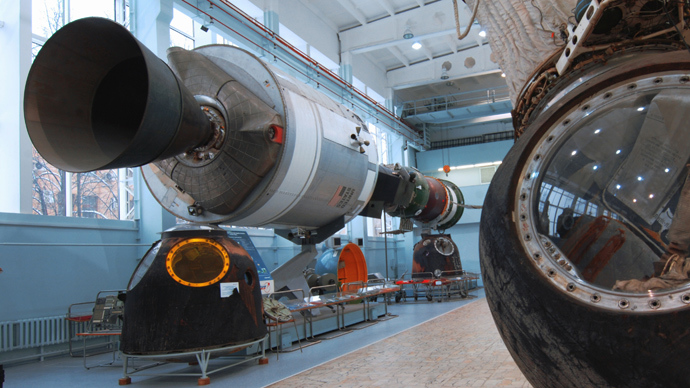From space, it’s one Earth even at times of great tensions – NASA legend
Space exploration should be pooled by all nations together, the legend of the American space program, George Abbey, told RT, citing the Soyuz-Apollo program as a vivid example of successful cooperation of international cooperation in space.
As Russia marks 80 years since the birth of Yury Gagarin, the first man in space in 1961, RT sits down with George Abbey – former director of the Johnson Space Center (JSC) and Fellow in Space Policy at the Baker Institute of Rice University.
George Abbey: I think Yury Gagarin, who was the first human to go to space, really led the way. He was a pioneer that really enabled the other countries and the other astronauts to follow him and achieve what he had achieved. He was the first and led the way and left a great legacy to the world.
RT:How difficult was it to convince Cold War adversaries to work with and trust one another?
GE: I think if you talk to the astronauts and to the cosmonauts, they would point out that when you look at the Earth from space – there are no borders, it is really one Earth.
They have a common goal – to explore the universe for the further knowledge of our Earth and the other planets. With that common goal they worked together very well, they got a great history of working together in the past in the Soyuz-Apollo test project and now they are doing it on the International Space Station.

RT:Amid the Cold War tensions and opposing cultures what type of passion or goals united the astronauts and cosmonauts?
GE: I think the Soyuz-Apollo program led the way. There were difficulties when we started that program, but I think we had a great crew both on the Soviet Union side and also the American side, led by Aleksey Leonov (Soyuz) and Thomas Stafford (Apollo).
They were able to resolve any difficulties as we went on and I think the two countries worked together very well, with a common objective of having a docking system that could be utilized by spaceships from either country.
With this step having been accomplished, it made it a little bit easier to make the International Space Station program established with Russia.
I think that Thomas Stafford and again Aleksey Leonov helped in the beginning though we did have difficulties. We got to know each other, we got more confidence in each other’s abilities and understanding of the technical issues. With that very confidence we’re working together very well now.
RT:The current crisis in Ukraine is causing many to fear the start of a new cold war... Any suggestions on how to deescalate the tensions? A new space expedition, maybe?

GE: We’ve worked quite well together in space and that would really provide a good example how Russia and the US should work together in other areas. We could learn good lessons from how we overcame our difficulties in the beginning of the Soyuz-Apollo program and on the International Space Station.
With that understanding and that approach hopefully we could overcome some of the other problems we have here living on Earth and relieve some of the tensions. Because it is one Earth, and if we can work together in space on the ISS, we should consider how we can do the same in other areas.
RT:For all their political disagreements and standoffs, do you think that deep down inside Russia & the US realize that they benefit a lot more from being friends?
GE: We are going to continue to explore as I think humans would go beyond the Earth’s orbit, we will go back to the Moon and go to Mars and I think we’re going to do it together. The International Space Station can provide a foundation of how nations can work together on major problems and projects. With that understanding and approach, we will be able to really get back to the Moon and go to Mars as one project with other nations, all working together.
The statements, views and opinions expressed in this column are solely those of the author and do not necessarily represent those of RT.
The statements, views and opinions expressed in this column are solely those of the author and do not necessarily represent those of RT.












